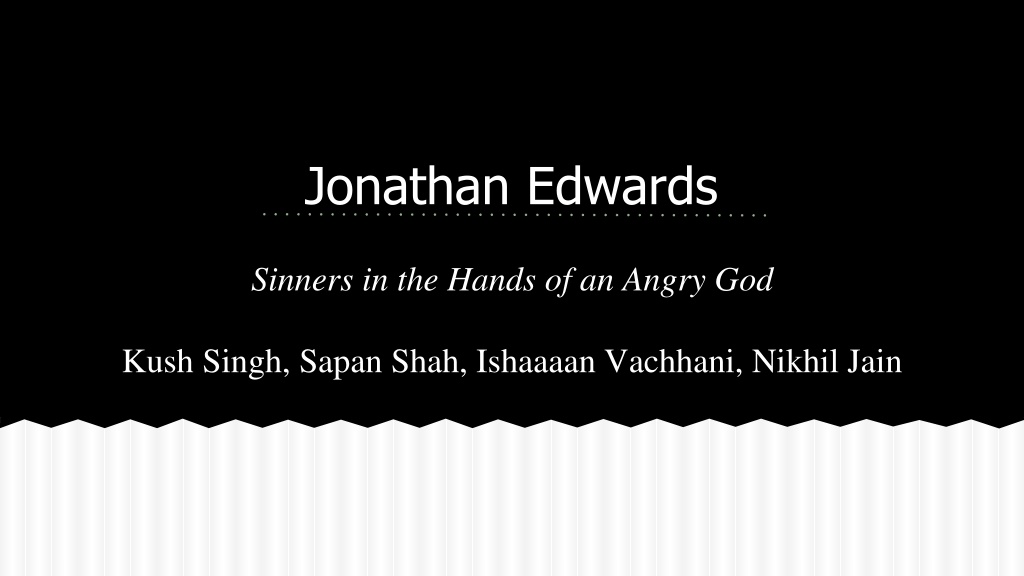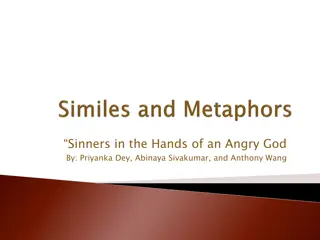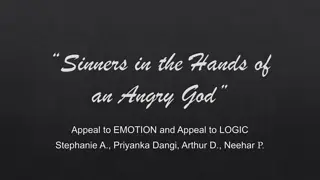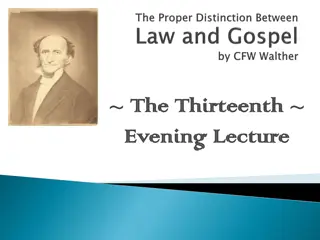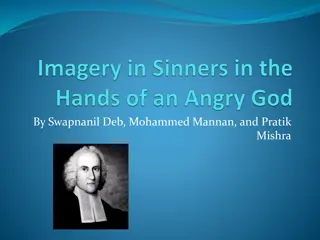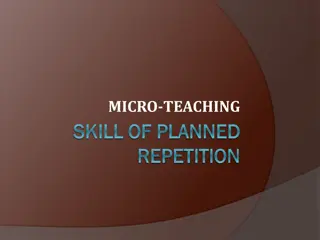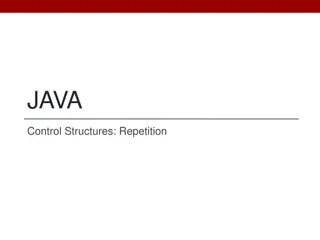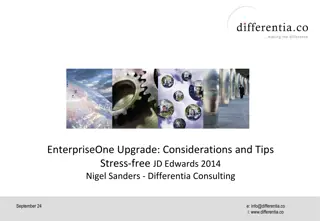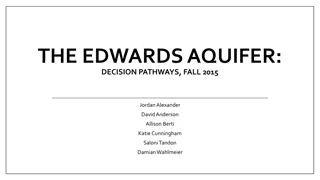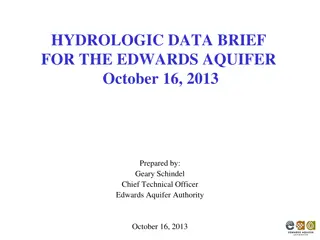Understanding Repetition in Jonathan Edwards' "Sinners in the Hands of an Angry God
Exploring the use of repetition in Jonathan Edwards' classic sermon "Sinners in the Hands of an Angry God," highlighting its significance in emphasizing key points, engaging readers, and creating a sense of unity. Through examples and analysis, the repeated phrases and concepts are examined for their impact on the overall message, reinforcing the terror of God's wrath and the urgency of repentance.
Download Presentation

Please find below an Image/Link to download the presentation.
The content on the website is provided AS IS for your information and personal use only. It may not be sold, licensed, or shared on other websites without obtaining consent from the author. Download presentation by click this link. If you encounter any issues during the download, it is possible that the publisher has removed the file from their server.
E N D
Presentation Transcript
Jonathan Edwards Sinners in the Hands of an Angry God Kush Singh, Sapan Shah, Ishaaaan Vachhani, Nikhil Jain
Why Repetition? - Emphasizes the point - If you miss it, you can hear it again - Adds rhythm - Engages the reader - Sense of unity
Why Repetition? - Emphasizes the point - If you miss it, you can hear it again - Adds rhythm - Engages the reader - Sense of unity
Why Repetition? - Emphasizes the point - If you miss it, you can hear it again - Adds rhythm - Engages the reader - Sense of unity
Why Repetition? - Emphasizes the point - If you miss it, you can hear it again - Adds rhythm - Engages the reader - Sense of unity
Simple Repetition Example #1 - Ten thousand times greater than it is (p. 80) - yea ten thousand times greater.... (p. 80) - You are ten thousand times more abominable (p. 81)
Simple Repetition Example #2 - And nothing to lay hold of to save yourself - nothing to keep off the flames of wrath - nothing of your own - nothing you have ever done - nothing you can do. (p. 81)
Simple Repetition Example #3 - The wrath of God is like great waters increase more and more (p. 80) - The bow of God s wrath is bent (p. 80) - floods of God s vengeance hitherto (p. 80)
Simple Repetition Location - ...you have no interest in any Mediator, and nothing to lay hold of to save yourself, nothing to keep off the flames of wrath, nothing of your own, nothing that you have ever done, nothing that you can do (p. 80-Last line)
Idea Repetition - Idea is repeated with different phrasing - That God holds you over the pit of hell...abhors you... ten thousand times more abominable than a stubborn rebel did his prince...and is incensed as much against you (p. 81) - Repeats the idea that God angry at your sins
Where is Idea Repetition Used? God that holds you over the Pit of Hell, much as one holds a Spider, or some loathsome Insect, over the Fire, abhors you, and is dreadfully provoked; his Wrath towards you burns like Fire; he looks upon you as worthy of nothing else, but to be cast into the Fire; he is of purer Eyes than to bear to have you in his Sight; so abominable in his Eyes a... You have offended him infinitely ... and yet tis nothing but his Hand that holds you from falling into the Fire every Moment: (Paragraph 8) - Repeats that we are at the hands of an angry God who has the power to end us at any moment
Impact of Identical Repetition - Emphasizes that God is angry but is merciful to you - Emphasizes that you are sinners and have done nothing good in life - Emphasizes that God can destroy you at any time - Overall, by repeating a phrase over and over again, it sets a theme and a tone for the sermon - Reader remembers the phrase because it sticks in their mind
Most Common Repetition Nothing His simple repetition of the word nothing is extremely common Especially in the last sentence ... and you have no interest in any Mediator, and nothing to lay hold of to save yourself, nothing to keep off the flames of wrath, nothing of your own, nothing that you have ever done, nothing that you can do, to induce god to spare you one moment (p. 81, last line)
Effectiveness - Edwards use of repetition helps drive home crucial parts of his speech His constant insistence about an angry god The idea that he only is preventing the listeners from the ultimate destruction For no other reason than his generosity. All of these repetitions keep the passage cohesive and unified throughout, driving the point home to all the listeners. -
